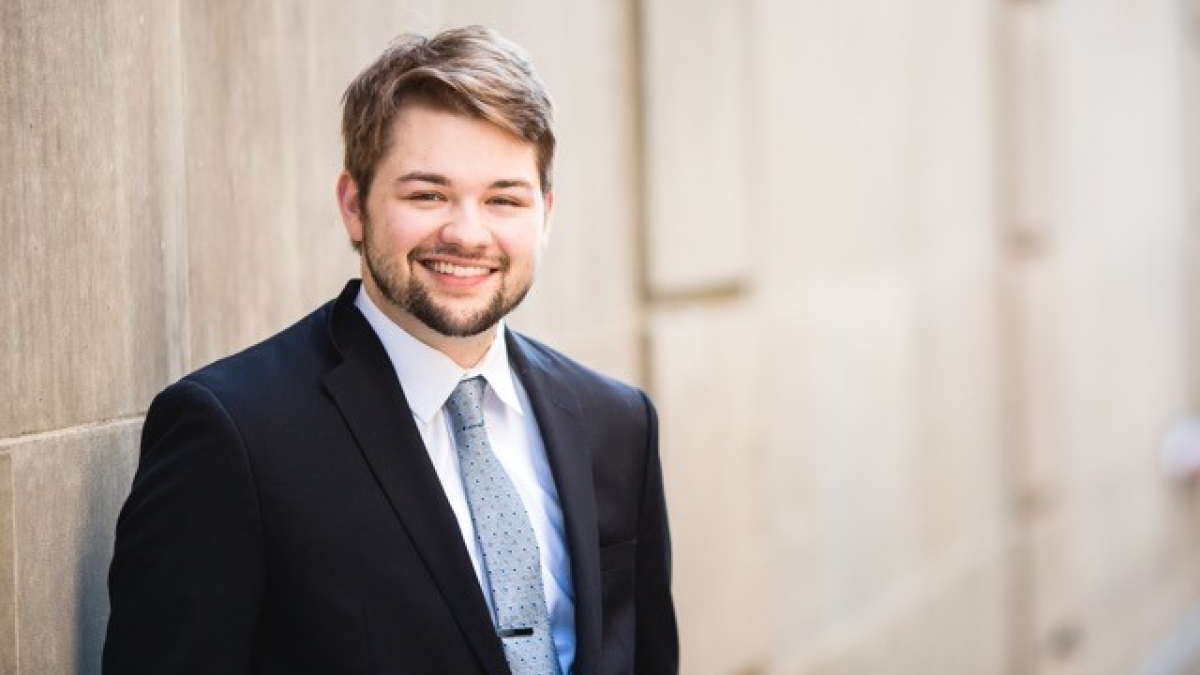ASU ignites passion for advocacy and law in alumnus

ASU political science alumnus Jess Jordan practices law in Chicago.
Jess Jordan started taking classes at Arizona State University when he was 15 years old. Although his family was hesitant about him starting college so young, they eventually agreed upon ASU. With him being a third-generation Sun Devil, the family trusted the institution.
Initially, Jordan chose to major in biology. His real passion, though, was politics and law.
“As a cautious 15-year-old, I didn't see myself as a leader and didn't feel I possessed the tools to make real change in my community,” Jordan said.
Eventually he realized that college was about pursuing one’s interests so he set out to overcome his fears and changed his major to political science. It ended up being a choice that would greatly alter his career path.
Political science served as a launching point. Jordan’s first political science course was an intro class with Professor Gina Woodall. The class began during the occupy movement, so Woodall had an open dialogue with students about peaceful protests and grassroots movements. To Jordan, these types of discussions helped reinforce the message that politics impact every aspect of our lives.
“The classes I took pulled me out of my comfort zone and ignited my passion for advocacy and the law,” Jordan said.
A year after graduation he was off to the John Marshall Law School. He immediately fell in love with the subject matter and served as a teaching assistant for his tort law professor. Jordan felt it was crucial to apply what he was learning in school to real life experiences so he completed internships and worked as a law clerk. It was in those positions that he recognized that tort law/personal injury was the area he wanted to practice.
According to Jordan, the benefits of interning or getting a job in the legal field beforehand "are immense."
“Not only do you get a better understanding of what type of law you might want to practice but have a leg up over your colleagues because you know the legal jargon and the timeline of a case,” he said.
The next challenge was the bar exam. Jordan prepped by studying six days a week, eight to 10 hours a day for 10 weeks. On top of that he also took an immersive prep class. In Chicago, where Jordan lives and works, the bar exam is taken in stadium with 1,500 people sitting in the center.
“Studying for the bar exam is just as brutal as everyone teases,” Jordan said. “The whole exam condenses three years of law school into two eight-hour days of testing. It was quite the grueling experience.”
Jordan passed on the first try.
Currently an associate attorney with McCready, Garcia and Leet, Jordan’s role is to represent clients that were injured in accidents through no fault of their own. Although each day is different, it usually starts in court, where he has five to six cases per day.
“I absolutely love the work I do because I am helping people when they are in some of the most vulnerable states in their life,” said Jordan.
With his work at the firm in Chicago, Jordan says he gets to advocate for justice, a goal that he set out to do early in his time at ASU. The School of Politics and Global Studies alumnus expressed gratitude for every lesson he learned at ASU.
“I know that my undergraduate experience is what allowed me to immediately start law school and achieve my ultimate goal of becoming a lawyer.”
More Law, journalism and politics

TechTainment conference explores the crossroads of law, technology, entertainment
What protections do writers, actors, producers and others have from AI? Will changing laws around name, image and likeness (…

How to watch an election
Every election night, adrenaline pumps through newsrooms across the country as journalists take the pulse of democracy. We…
Law experts, students gather to celebrate ASU Indian Legal Program
Although she's achieved much in Washington, D.C., Mikaela Bledsoe Downes’ education is bringing her closer to her intended…